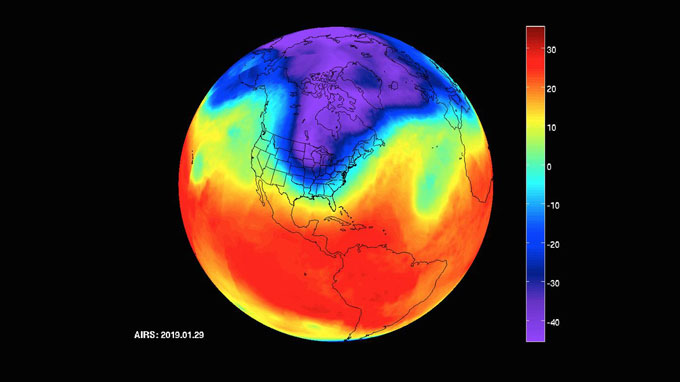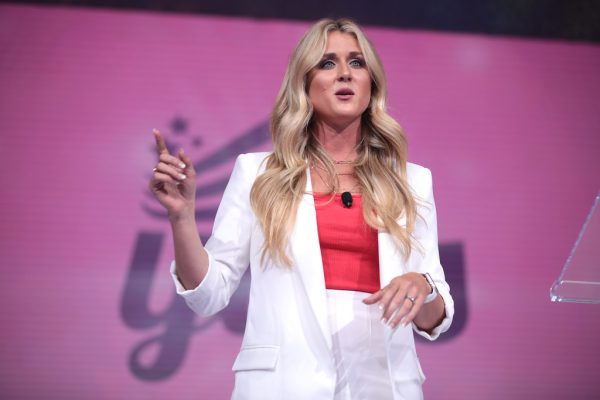Breaking Down the 18 Month Warning
September 17, 2019
At the end of last July, the BBC published an article explaining why climatologists and diplomats such as Hans Joachim Schellnhuber and Prince Charles have emphasized the importance of the next 18 months in the global fight against climate change. Since then, warnings of an 18-month ultimatum have spread across social media and dinner tables, inciting arguments about not only how best to approach this situation, but the ultimatum’s legitimacy in the first place. News of private corporations cutting and burning down portions of the Amazon to clear land has further fueled public outrage, given the Amazon’s importance as a natural air filter for the world’s greenhouse gases. But as the 18-month message spreads across the nation, so does paranoia and confusion, largely as a result of misinformation.
Arguably the population most concerned about the climate is the nation’s youth. “I believe in this warning 100% because there have been numerous studies on this topic, all of them pointing to the same conclusion: humans are killing the environment,” said junior Maeve Healy. Maya Passman, a senior, agreed, “I definitely believe the warning is real. Our Earth has been declining ever since humans have occupied it. It is devastating that we have been around for a fraction of the Earth’s existence, yet we have already destroyed it.”
On the other hand, junior Ethan Pinto has doubts about the warning’s legitimacy, considering similar cautionary messages that have come before it. “I don’t really believe this warning at all,” he said. “We were literally told not even six months ago that we had eleven years, and now all of a sudden it’s eighteen months? People have been saying this for years, and for that reason, I don’t buy it.”
The varying levels of concern about the ultimatum is, to some degree, a reflection of the disparities in the warning’s interpretations. While the messages dispersed online imply that the Earth will experience an apocalyptic end by December 2020, the warning’s actual implications are somewhat less catastrophic. Schellnhuber, the founding director of the Potsdam Institute for Climate Impact Research and former chair of the German Advisory Council on Global Change, said, “The climate math is brutally clear: While the world can’t be healed within the next few years, it may be fatally wounded by negligence until 2020.” However, the Potsdam Institute has clarified that Schellnhuber meant the Earth is approaching a point at which the global temperature will rise to an amount that will slowly but steadily lead to uncontrollable and disastrous climates worldwide. To offer context, the goal of the Paris Climate agreement was to peak the global temperature at 1.5º C; current carbon-cutting plans are nowhere near this goal and the global temperature is now approaching 3º C.
But contrary to the growing narrative, the 18-month warning truly is an ultimatum, meaning there is an option other than unavoidable devastation. Prince Charles, who reiterated the warning during a reception for Commonwealth foreign ministers, meant it as a call for action to members of the UN to begin radical initiatives towards cutting down carbon emissions. Many nations, including France, Sweden, and the UK, are shutting down their coal-fueled plants and optimizing their recycling systems. International pressure has been placed on the nations with the largest yearly emissions and UN Secretary Antonio Guterres has emphasized the importance of all UN members committing to decreasing their carbon emissions. But likely the most important steps towards combating climate change will take place after the Conference of Parties to the United Nations Framework Convention on Climate Change (UNFCCC COP 26).
Nevertheless, many civilians have realized and argue the importance of smaller-scale actions in reducing the world’s carbon footprint – junior Rashail Wasim said “I’ve seen people doing small things to limit their own carbon footprints, such as use metal straws and reusable bottles. I think these are important steps to getting us off fossil fuels and transitioning to a net zero-carbon economy, but collective action is still necessary.”
However, Briannah Cook, a senior, highlighted the fact that, due to the aforementioned misinterpretations of the 18-month warning, not everyone is as inspired to reduce their carbon footprint: “I think people are paralyzed into apathy,” Cook said. “With all of the reports coming out, people feel like there’s nothing they can do to help stop the crisis, so they just stop caring. These reactions are understandable, but they will be the death of us.”
Maeve Healy also emphasized the importance of both small actions in disincentivizing unsustainable methods of production and pressuring politicians and representatives into making the drastic changes that the ultimatum calls for. “The Earth’s temperature will continue to rise unless the US Congress and the rest of the world’s officials create laws dictating how much waste and carbon emissions companies can produce and regulating how many trees are cut down,” she said. “Anything is better than nothing, so everyone should keep carrying their straws and making little changes, but please keep in mind that the world is not and should not be depending on us as individuals. The most important thing to take away from the warning is that it’s essential that we tell our leaders to pass environmental laws. Write to our representatives and senators and urge them to help pass bills. Call our congressmen. Protest. Get the government’s attention, and do what we can to give power to the people who can stop climate change.”


























































